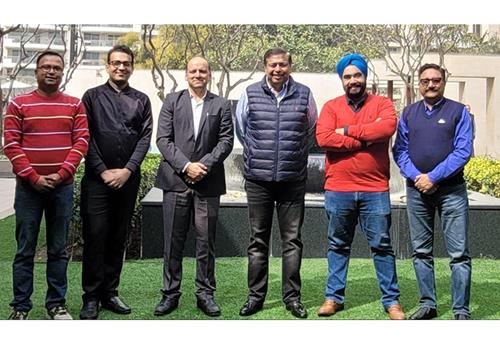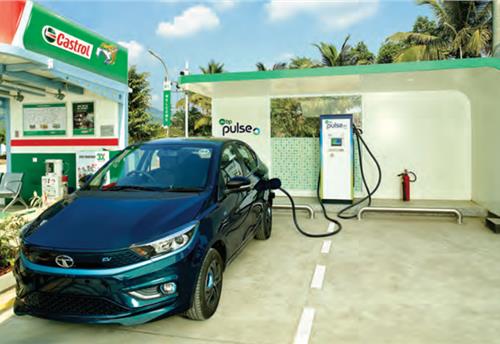A teenager and an autonomous vehicle
Ati Motors is an OEM that is co-founded by Saad Nasser. The OEM has developed the first prototype of an autonomous cargo carrier in India.
For India to be more progressive, a strong culture of innovation and the power of youth will play crucial roles. Ati Motors and its teenage co-founder promise both.
At industry conferences, one expects to meet speakers who are professionals and have good years of experience under their belt. It is very rare to find the name of a 15-year-old in the list of speakers, most of whom are quite well known.
Saad Nasser is the teenager and he is one of the youngest, if not the youngest, co-founder of an OEM! And that's the reason why he features in the speakers' list.

Off the beaten track. Fifteen-year-old Saad Nasser opted out of formal schooling after the fourth standard.
Ati Motors, co-founded by Saad Nasser, his 'mentor' Dr V Vinay (co-founder of Simputer – a low-cost alternative to PCs, and Strand Life Sciences) and Saurabh Chandra (co-founder of Neev Technologies). The trio and their team have recently developed the first prototype of an autonomous cargo carrier, perhaps the first one in India. Unlike the driverless or autonomous driving vehicles undergoing tests in many parts of the globe, the vehicle by Ati Motors has been designed ground-up as an autonomous vehicle, not a driverless vehicle. "Because, if you are going to design for autonomy, then a lot of things disappear," says Saad. That eliminates, for starters, the need to have a front-facing windshield or front-facing seating arrangement for example. "You can remove that requirement. And since we are focusing on cargo application, you don’t need to have a human inside; so the whole concept of safety becomes completely different," explains Saad.
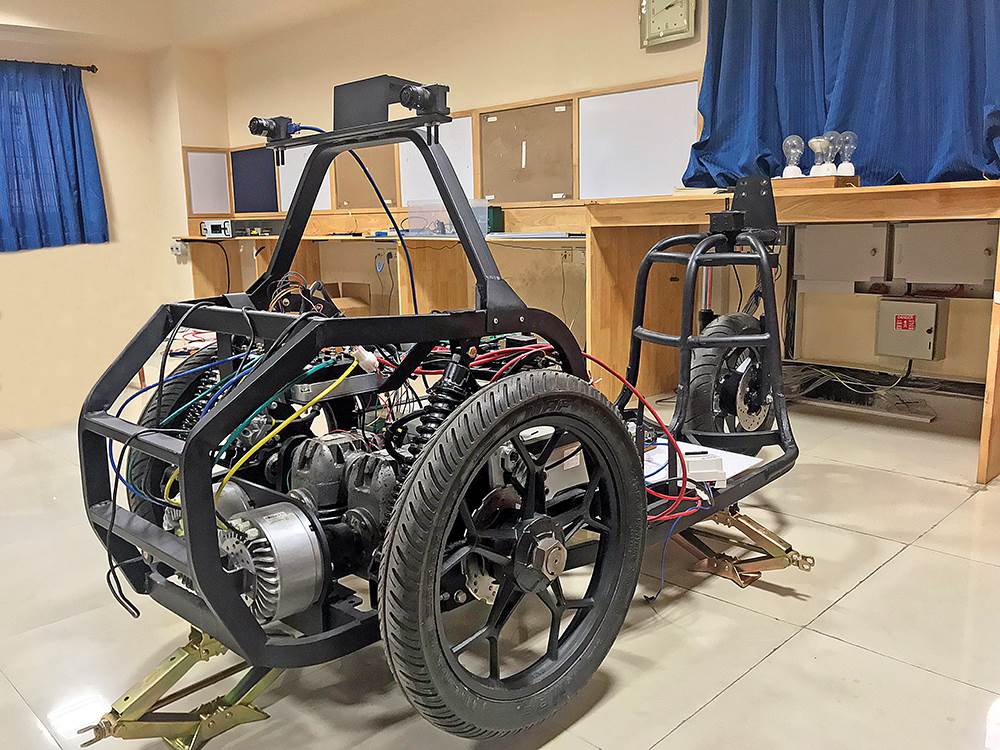
Unlike conventional three-wheeler cargo carriers, the autonomous vehicle has two wheels at the front. Its load-carrying capacity is scalable up to 1 tonne.
The autonomous cargo carrier could have some "interesting safety technologies," since there is no requirement for protecting occupants. The focus is purely on ensuring that nobody gets hurt by the vehicle. "For example, it solves the autonomous vehicle ethics problem. If you are driving on a cliff, you can either hit someone or fall off the cliff. Here, we can fall off the cliff because we are only carrying cargo. It's not a hard decision," says Saad. That, if at all, hopefully, will be a rare case.
Ati Motors' autonomous vehicle will be electric powered, most likely with an 8-kilowatt-hour battery pack. It's a three-wheeler with two wheels in the front. The payload capacity of 100 kilograms is scalable up to a tonne. But why a cargo carrier when the world is trying to develop autonomous passenger cars? "Cargo is a more interesting space for trying these new applications. So, one is, there is just more opportunity in terms of places you can try it in. For example, a large amount of cargo is transported in private environments," says Saad. It is such places where the autonomous vehicle will be targeted initially. At the time of conducting the interview, the vehicle had a top speed of 40kph. It is also designed to climb inclines of 15-17 degrees "very easily". The vehicle, fully loaded, is designed to travel up to 200km, depending on the battery pack size.
Keeping things light
Lightweighting technologies, materials and the absence of many components found in a small commercial vehicle have helped keep the weight of the three-wheeler at around 100kg. Except for the battery pack, there aren't many components to contribute weight and cost too. Saad points out that in the case of Ati Motors' vehicle, there could be other components such as "pretty expensive" sensors that may contribute significantly to the cost of the vehicle.
What next after the cargo carrier project? "I think it's too early to decide. Right now, we are focusing on this one vehicle which is versatile enough to be tailored to a lot of other applications," says Saad. Future vehicles could be made for applications other than carrying cargo. Saad says, "Not only cargo but you could think about it as being a general vehicle platform as well because you have this autonomous vehicle which you can control via some API, so you can put all sorts of things on it." Airports, large resorts, warehouses and manufacturing facilities could be some of the places where an autonomous cargo carrier would be a good fit.
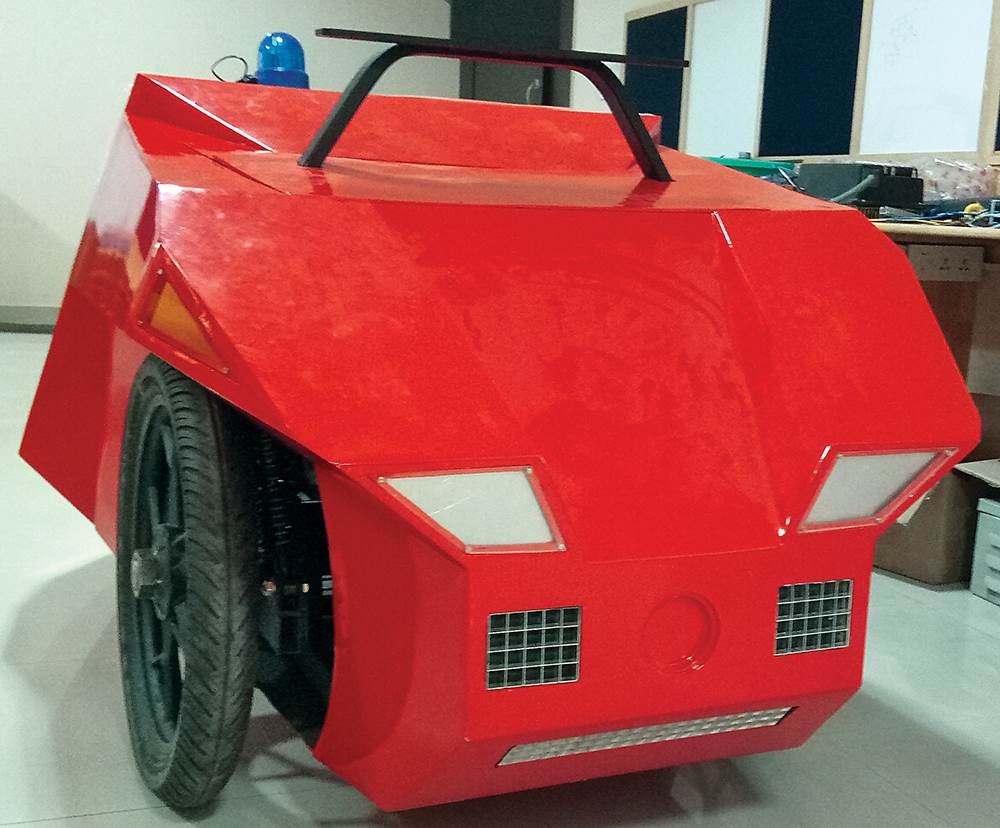
First look of the front of the autonomous cargo carrier.
Given the information he talks on, one could mistake Saad to be a qualified engineer. Well, he is like one, but without a formal degree under his belt. What is interesting is that Saad left formal schooling after the fourth standard. "He was finding the pace (in school) kind of slow, so we started helping him and we were lucky to get mentors and people who help him out. At a point, it became irrelevant to what the school was doing," says Parvez Nasser, Saad's father. Does he get concerned about Saad's future in terms of his career without a formal degree? He answers by asking me, "You are here (in the conference) right now. Does anyone tell that we are looking for people from colleges or graduates? Is anyone talking about your grades or your degrees?"
In a young India, that's also witnessing a growing culture of start-ups, the story of both Saad and Ati Motors's autonomous vehicle stand out.
(This article was originally featured in the 1 January, 2018 issue of Autocar Professional)
RELATED ARTICLES
Branded content: HL Klemove inaugurates first Local ADAS Radar Manufacturing Unit in India, marks a significant achievement in “Make in India” initiative
The inauguration ceremony was held in the presence of Vinod Sahay, President and CPO of Mahindra & Mahindra Ltd. and Dr....
BluWheelz to 'Green Up' logistics sector
With their EVs-as-a-service solution, the startup is playing it smart with costs and looking to electrify the entire seg...
BRANDED CONTENT: Spearheading the EV revolution in India
Jio-bp is a joint venture between Reliance Industries and BP PLC where both entities have married international expertis...





 29 Mar 2018
29 Mar 2018
 13903 Views
13903 Views



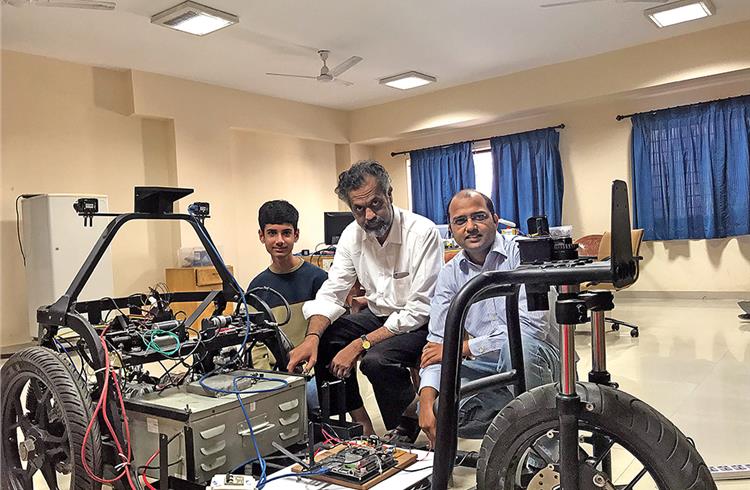
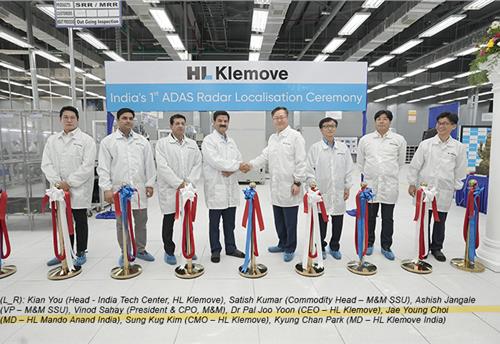
 Autocar Pro News Desk
Autocar Pro News Desk

